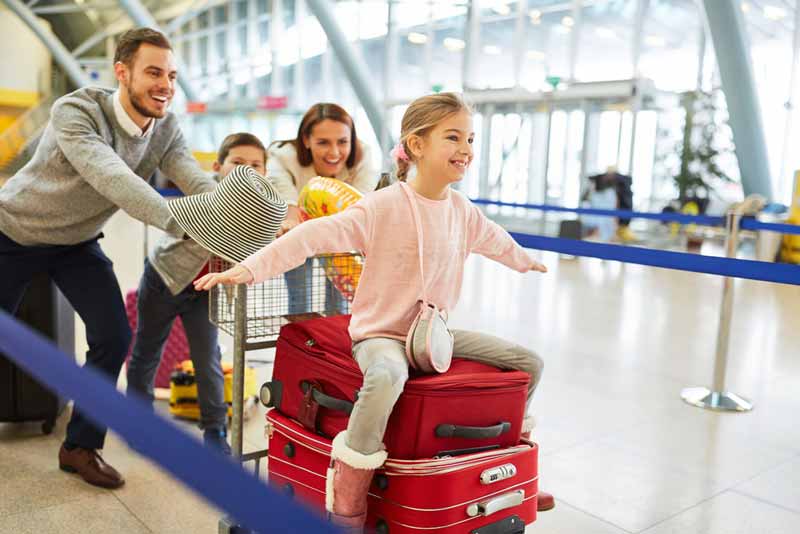As announced earlier, Canada has put in effect the new travel measures starting February 28, 2022. The government decided to renew several border measures as the country transitions away from the crisis phase. The new measures include allowing non-essential travelling, changes in the quarantine measures, entering the country with an antigen test, and so on.
With the new policies, the Canadian government aims to manage Covid-19 for a long term through a sustainable approach. The officials agree that the transition is possible because of various factors such as Canada’s high vaccination rates, decrease in hospitalization rates, rise in the availability and use of rapid tests to detect the virus, and growing domestic availability of therapeutics and treatments.
Thus, the Government of Canada announced a series of adjustments to the earlier border measures beginning from February 28 at 12:01 a.m. EST. This represents the beginning of a phased easing of travel restrictions.
Random On-arrival Testing
On-arrival testing for fully vaccinated travellers has been eased. Following the earlier pattern, border services may select random international travellers for on-arrival testing. However, they are not required to quarantine until they get the results. The new policies allow travellers to take connecting flights or go to their final destination after taking the test at the airport.
Children under age 12, travelling with fully vaccinated parents, will continue to be exempt from quarantine and from other earlier prescribed limitations as well. So, now they don’t have to wait 14 days before attending school, daycare, camp, etc.
Unvaccinated travellers are still required to test on arrival and again on Day 8. They also have to follow a 14-day quarantine unless they meet one of the exemptions. Only exempted unvaccinated travellers are allowed to enter Canada without testing and other travel measures.
Pre-entry Requirements
The travel restrictions based on pre-entry requirements are also relaxed starting February 28. The travellers of age 5 years and above still require a Covid-19 test to cross the border. However, in addition to the previous molecular tests such as PCR test, travellers can now provide an antigen test result as well. This comes as a relief to travellers as antigen tests are typically cheaper than a molecular test and can provide results within minutes.
The Canadian border services accept both test results according to the new travel measures. It is required that the pre-arrival antigen test is taken within 24 hours and molecular test is taken not more than 72 hours before the travellers’ scheduled flight or arrival at the borders. The antigen test must be authorized by the country where it is purchased and administered by a laboratory, healthcare entity or telehealth service.
Nevertheless, to prove a previous positive covid-19 infection, only molecular test results are accepted at the borders. The molecular test must be taken between 10 to 180 calendar days before entering Canada.
ArriveCAN
Travellers are still required to upload necessary information on ArriveCAN about vaccination proof in English or French and quarantine plan after arrival in Canada. All travellers must register and upload the mandatory documents on ArriveCAN’s free mobile app or website before travelling.
Provincial Restrictions
Travellers must ensure that they qualify all travel measures to enter Canada before heading to the borders. Other than the border restrictions, some provinces and territories might also have their own travel restrictions and requirements. It is essential for all travellers to meet both the federal and provincial entry requirements to be able to enter Canada.
International Flights Resume
International flights are now permitted to all Canadian airports as announced by travel minister Omar Alghabra. The Transport Canada’s Notice to Airmen (NOTAM) that restricts arrival of international flights expired at 4 p.m. EST on February 28 by the new travel measures issued by the government. Now, all Canadian airports that are designated by the Canada Border Services Agency are allowed to receive international flights.
Canada adjusted its Travel Health Notice from a Level 3 to a Level 2. This change allows Canadians to travel for non-essential purposes as well, which they were earlier recommended to avoid.
The Canadian government still urges its people to take necessary precautions while travelling as the Covid-19 risk still prevails with the new Omicron variant.
The government admits that the ability of the country to transition to a new phase is a result of the actions of millions of Canadians who followed public health measures, including getting themselves and their families vaccinated. It believes that people must continue doing their part to reduce the spread of Covid-19 by getting vaccinated and boosted, using masks where necessary, self-isolating if they have symptoms and self-testing if possible.


